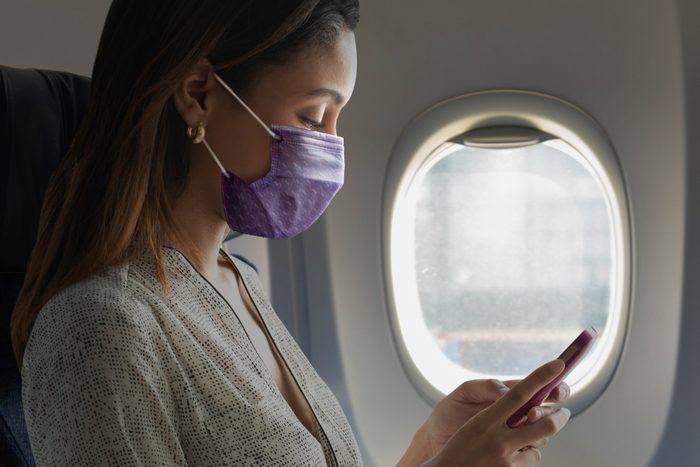
Travel in the time of coronavirus
As if travel weren’t filled with enough challenges already. Getting to the airport. Making it through security. Hoping—often against hope—that the hotel you booked bears at least a passing resemblance to the photos on its website. Now, add Covid-19 concerns to the mix and it’s enough to make you want to skip your summer vacation altogether and plan a staycation, instead. (In fact, the Centers for Disease Control and Prevention (CDC) recommends avoiding all nonessential international travel.)
Since travel increases your chances of getting the new coronavirus, check to see if Covid-19 is spreading in any of the places you’re headed. “We are surrounded by fear and uncertainty as rules and regulations change by the hour,” says Peter Greenberg, travel editor at CBS News. His best piece of advice? Before you book a trip, talk to your physician about your particular risk for getting the disease. Once you’ve gotten the go-ahead to book your flight, avoid making a reservation online, he says. “Online you can’t ask: How are your boarding procedures? What about meal service? Can I bring my own food? You need to have a conversation.” Here’s what not to do to stay safe on vacation.
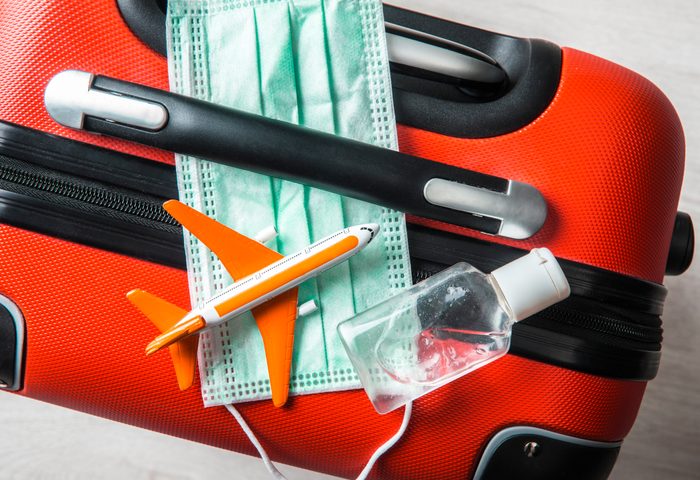
Don’t leave home without Covid-19 essentials
The CDC’s recommendations for staying safe in the age of Covid-19 apply whether you’re traveling to your local grocery store or across the country:
- Wear a mask whenever you go out.
- Wash your hands often. You know the drill: Use soap and water for at least 20 seconds (the time it takes to hum “Happy Birthday” twice). If soap and water aren’t available, use hand sanitizer that contains at least 60 percent alcohol.
- Practice social distancing whenever possible. That means maintaining six feet of physical distance from other travelers. “Use precautions,” says Waleed Javaid, MD, director of Infection Prevention and Control at Mount Sinai Downtown in New York City. “You need to factor in how you’re going to get from point A to point B and limit interaction with others.” (Here’s why taking a shorter vacation is actually better for you, according to psychologists.)
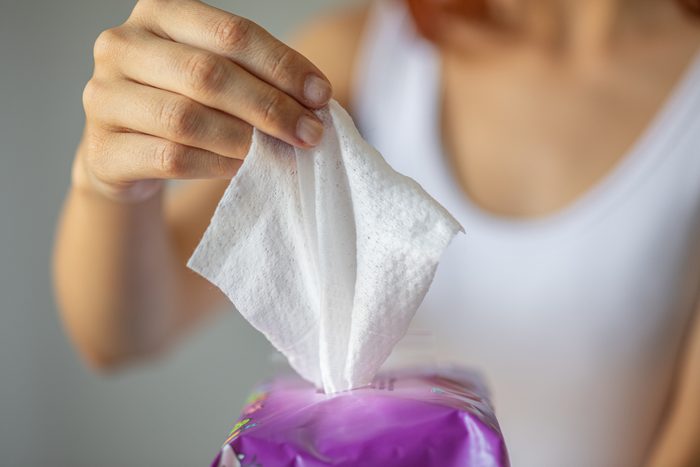
Don’t go to the airport without antibacterial wipes
Many vacations start with a trip to the airport, but just making your way through airport security can expose you to all kinds of germs. Contrary to popular belief, your chances of getting a fungal infection like athlete’s foot when you take off your shoes are extremely slim, says Dr. Javaid. But there are other concerns. Namely: using your cell phone moments after it’s made its way through security in a dirty bin. Wipe it down with an alcohol-based towelette before using it again.
“Most people are not aware of all the physical touchpoints from the minute you get out of the car to the moment you get on the plane—whether it’s a door, a kiosk, a concession stand, documents like your boarding pass,” says Greenberg. “The good thing is the TSA has amended its 3-1-1 rule to allow you to bring a good amount of hand sanitizer on the flight. The minute you get to the gate cover your hands with it.”
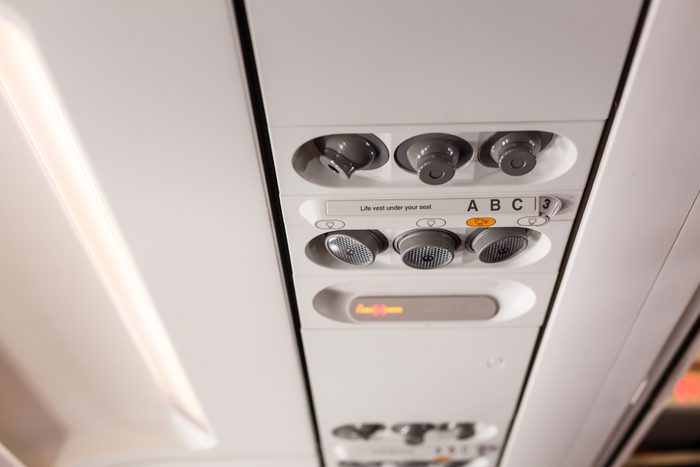
Don’t close the air vent above your seat
“Once you’re on the plane, put on plastic gloves, take an antiseptic wipe and use it on every surface: armrests, tray table, and the air vent above,” says Greenberg. Conventional wisdom suggests the air blowing out of that little vent over your seat would spread germs and viruses throughout the cabin. It’s actually just the opposite, says Greenberg. Most viruses and other germs don’t spread easily on flights because of the way air circulates and is filtered on airplanes. “Every plane today has high-efficiency particulate air (HEPA) filters,” he says. “So the air is brought in, circulated and then purged every three minutes as new air comes in. The actual air quality is so much better than your own house.”
Other stay-safe measures to take inflight: Ask for a window seat. A study published in 2018 in PNAS suggests that window seats are best to help minimize contact with other passengers. Of course, that won’t allow you to maintain social distancing on a plane, so be sure to wear a mask. And that’s true even if you think the person sitting next to you appears well. A study published in 2020 in mSphere, a journal published by the American Society for Microbiology, found that even asymptomatic Covid-19 patients can contaminate their surroundings, imposing risks for anyone who comes in contact with them. (Here are 13 things you should never eat on an airplane.)
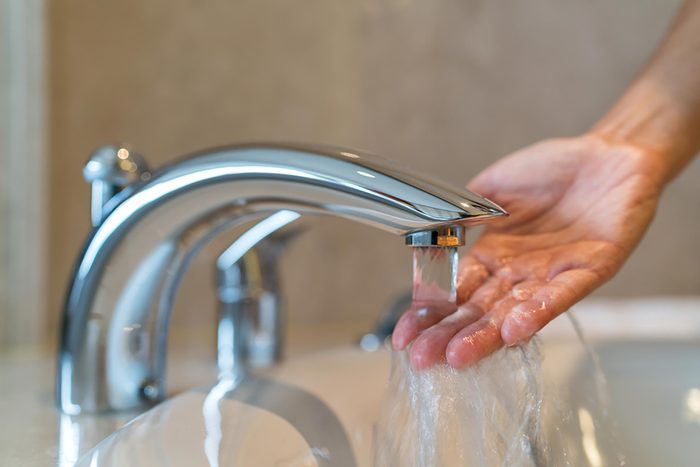
Don’t take a bath in the hotel tub
Nothing says “vacation” like a leisurely bubble bath in a hotel tub, maybe with a glass of wine, and good book. But soaking in a hotel tub—especially a luxury hotel tub—could mean stewing in a mix of bacteria and cleaning chemicals, according to research by the travel logistics website TravelMath. In two separate studies, researchers found that hotel rooms are dirtier than the average airplane, home, or school. Specific hot spots include the TV remote, bathroom counter, phone, and desk.
In the age of Covid-19, “hotels are partnering with major medical institutions, whether it’s Mayo Clinic or Johns Hopkins, to come up with housekeeping protocols,” says Greenberg. At least one hotel chain “allows you to check in with your cell phone to minimize physical contact and they put a physical seal on the door after they’ve finished cleaning the room. Hotel guests use their cell phone to unlock the door and when they do that breaks the seal.”
Even so, Greenberg suggests taking extra precautions once you’re in the room. “If there is a bedspread, take it off and throw it in the corner,” he says. In addition to wiping off all surfaces with antibacterial wipes, be sure to rinse the drinking glasses before using them. “No matter if they’re wrapped or look clean, run each under hot water for two minutes,” he suggests. (Here’s how to stay healthy in your hotel room.)
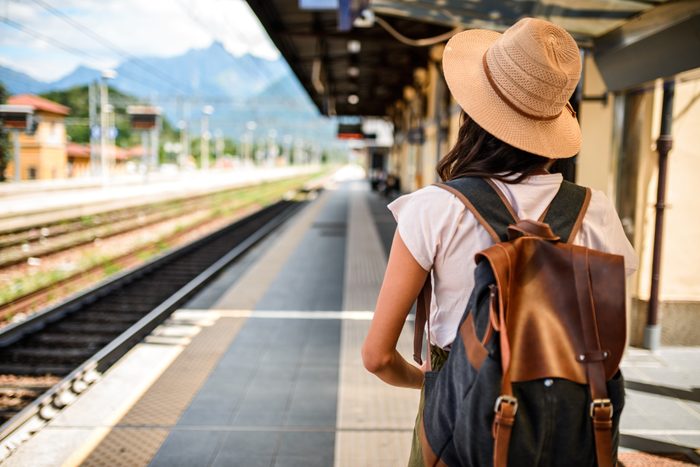
Don’t avoid buses and trains
Getting to your destination by train or using the local transit system to see the sights once you’re there may seem like a risky proposition. After all, how many germs are traveling with you on that subway, bus, or train? Turns out, surprisingly few, according to Travelmath. (The one exception: New York City subways.) And in the name of social distancing, says Greenberg, “most motor coaches that are designed to hold 56 people are now holding only 28. Amtrak has also cut capacity to 50 percent.” (Check out these 11 germ-spreading items you’re probably carrying right now.)
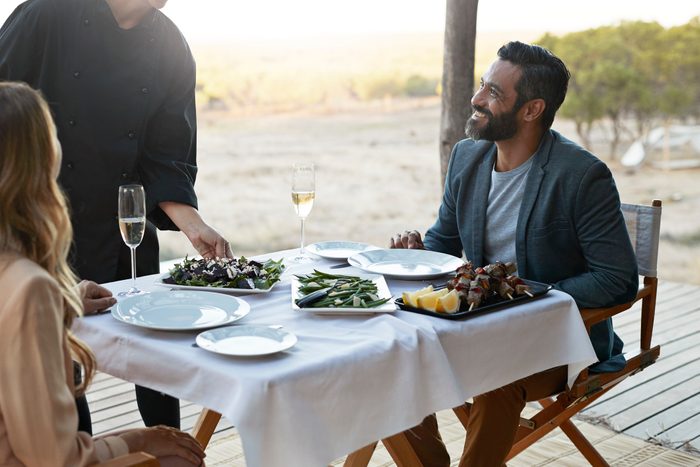
Don’t eat and drink with abandon
Every traveler has experienced belly trouble at some point, and the illness is often due to the consequences of eating and drinking with abandon, especially if you’re traveling abroad. The CDC recommends avoiding raw fruits and vegetables, raw or undercooked meat, poultry, seafood, and eggs, unpasteurized milk and milk products, and food sold by street vendors.
If you’re vacationing closer to home, where food safety is less of an issue, try this trick from Greenberg to avoid what he calls “the terrible twos—two-top tables that have you sitting six inches away from the table next to you” and ensure social distancing when dining out. “Always make a reservation for three even if you’re planning to dine alone,” he says. “That way, the restaurant has to seat you at a four-top, which automatically helps ensures social distancing.” (Check out these 14 reasons you always get sick on vacation.)
